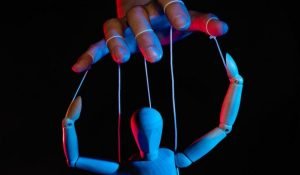For some, reading people accurately is a gift they already have. For others, it’s something that requires lots of fine-tuning.
Several factors contribute to our perception of others, and knowing the cause of our distorted readings will undoubtedly help to make them more precise in the future.
Emotional intelligence is something we grew up learning to strengthen or slow down. If you were told not to cry when you were a child, or you were taught to deny your own emotions with responses like “I’m fine”, you are prone to be less receptive to the emotional state of others than someone who grew up discussing their feelings.
David Caruso, Ph.D., a well-known psychologist, assistant to the dean of Yale University, and co-author of the Mayer, Salovey, Caruso Emotional Intelligence Test, says that being taught to hide the very thing that makes us human can have disastrous effects later in our adult lives. The things that we consider daily activities can also affect our ability to read others accurately.
A recent study published in Computers in Human Behavior explains what happens when we remove screen-based media and communication devices from our lives and replace them with physical and personal connections instead:
“Although digital media offer many useful ways to communicate and learn, our study suggests that the reading skills of human emotions can be diminished when face-to-face interaction is displaced by technology-mediated communication. We found that those who were far from the screens, with many opportunities for face-to-face interaction, improved significantly in reading the facial emotion clues.”
There are several determinants of our emotional intelligence base, and how well we can read someone, but how can we improve these qualities and make our personal meetings more informative and more successful?
Table of Contents
1. Keep an open mind:
Try to approach each individual interaction in the most objective way possible. Often, we carry our own personal opinions and biases in our perceptions of others, which can cloud our judgment.
Blanca Cobb, body language consultant and founder of Truth Blazer, says:
“Your own emotions and previous experiences with another person can color your feelings, and this can lead you to misinterpret the situation.”
Instead of taking note of someone’s attire, or assuming that their careless appearance has something to do with the benevolence or malice of their intention, become a blank slate and pay attention to the behavior and words of them.
2. Pay attention to body language:
If you’re in a bad mood, you’re probably not as good at hiding it as you think. Our body language always betrays us, if you know what to look for.
There are positive and negative emotions that we display through body language. Almost imperceptible changes are taking place, most of which we don’t know about.
Crossing our arms, the direction we point our feet in when we talk to someone, eye contact, a smile, and various other displays of body language can say a lot about how you feel or how you feel.
3. Don’t take first impressions for granted:
After we develop someone’s idea, we tend to always see them through that specific lens.
For example, if we label someone as “manipulative,” we will notice behaviors that match that label, and we will be less likely to notice behaviors that don’t.
It is true that our first impressions are generally correct on a person, but they are never infallible. Remember to reassess your original assumptions based on continuous interaction and modify them accordingly.
4. Don’t dwell on the past:
As humans, we have an incredible memory. Unfortunately, this means that we remember things from the past that should have no bearing on our present or our future.
Suppose you have had an unpleasant experience with a computer support representative, you could, unfairly, assume that the next one will be just as useless. Or, if you’ve recently met someone who shares the name of someone you don’t like, you can treat them slightly differently.
Instead of carrying these negative reminders with you for the rest of your life, treat each case as something new to experience. Life will be much more satisfying and the lines of communication will not be blocked by irrelevant information.
A better understanding of our fellow humans allows for deeper and more honest relationships. Not to mention, improving our emotional intelligence is beneficial for our health.
Many studies have been conducted on the relationship between emotional intelligence and general well-being, with fascinating results.
One such study by Dr. Reuven Bar says, “The results generated by the studies reviewed indicate that emotional intelligence has a significant impact on health as well as the ability to cope and possibly survive potentially medical threatening conditions.
Additionally, a recent meta-analysis by Schutte, Malouff, Thorsteinsson, Bhullar, and Rooke indicated that emotional intelligence is associated with better health.
A better understanding of ourselves allows a better understanding of others, and this understanding can benefit our mind and our body.







